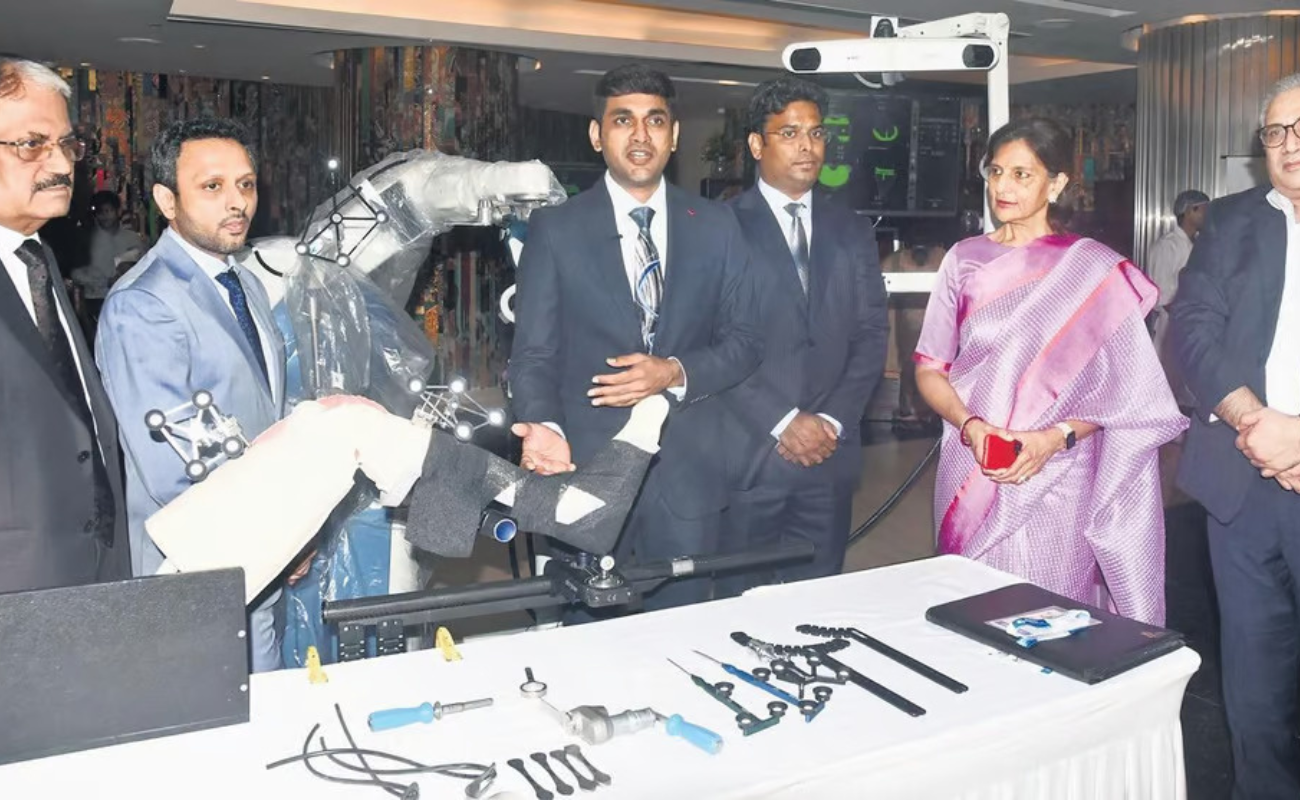Chennai Apollo hospital performs 370 robot-assisted orthopedic procedures in 10 months

Author :
Category :
Published Date : November 21, 2024
Table of Contents
A robotic knee replacement is just like a traditional knee replacement. The surgeon removes damaged tissue and replaces it with an artificial joint.
CHENNAI: The Apollo Institute of Orthopaedics, operational since January, has successfully conducted 370 robotic orthopaedics procedures using cutting-edge minimally invasive robotic surgical techniques and technology.
A robotic knee replacement is just like a traditional knee replacement. The surgeon removes damaged tissue and replaces it with an artificial joint. The highlight is that the surgery is done with the assistance of a robotic arm or handheld robotic device. Robotic technology helps the surgeon to achieve accuracy, alignment, and balance during the actual surgery.
Dr. Madan Mohan Reddy, Joint Replacement Surgeon, Apollo Hospitals said, “With the robotic arm, reproduction of precise bone cuts can be done, every single time, first on a virtual 3D model and then in the operation theatre.
Several studies prove that patients who underwent robotic arm-assisted surgery experienced improved early function, lower post-op pain, less need for analgesics, faster recovery and higher patient satisfaction compared to manual surgery. The success rate in conventional knee replacement surgery is about 90% to 95% but with robotic-assisted surgeries, the accuracy is cent per cent. Patients recover faster and relief is long-lasting”.
Preetha Reddy, executive vice-chairperson, Apollo Hospitals Group, said, “At Apollo, we are bringing in cutting-edge medical technology, representing the next era of healthcare innovation to treat patients.”
India is estimated to emerge as the osteoarthritis (OA) capital of the world with 60 million patients by 2025.
Dr. Arun Kannan, (third from left) explaining knee-replacement using robotic arm at a presser. Also see are Dr. Gopalkrishnan, Dr. Kunal Patel, Dr. Vijaykishore Kondreddy, Preetha Reddy, executive vice-ch
